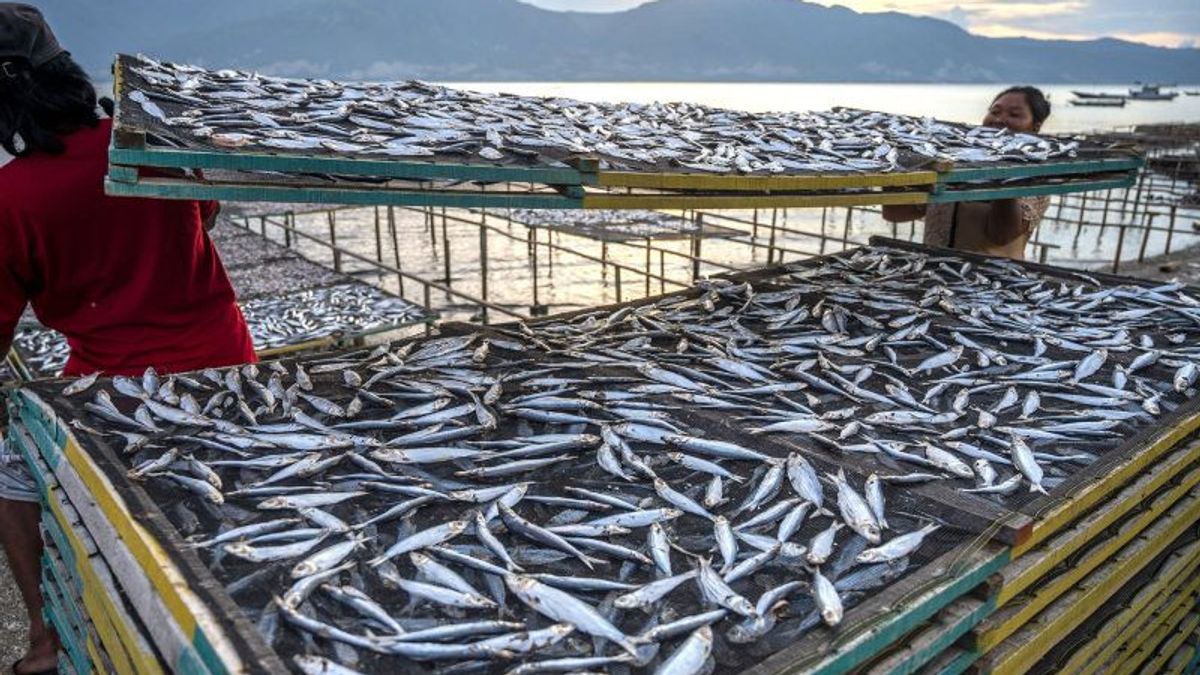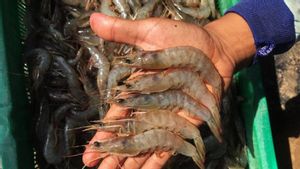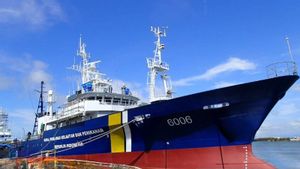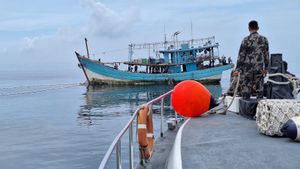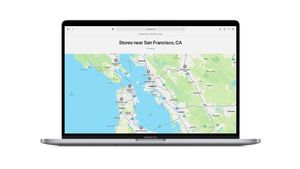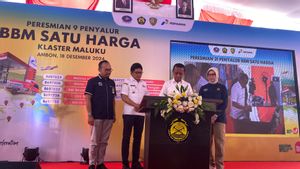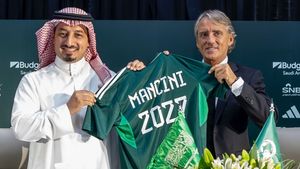JAKARTA - The Ministry of Maritime Affairs and Fisheries (KKP) has tightened supervision of fish landings at fishing ports and other fishing landing sites. This is done to ensure that all fish catch results are reported in accordance with the provisions for the imposition of PNBP in the post-production fishing sector.
"Supervision of the unloading of fish catch activities is important so that the implementation of post-production PNBP can run optimally, in order to develop a sustainable marine and fisheries sector," said Director General of Marine and Fishery Resources Supervision (PSDKP) Adin Nurawaluddin in a written statement received by VOI, Wednesday, July 26.
Adin said the supervision of fishing landings had been carried out in an integrated manner in all Indonesian fishing ports. This is done through the issuance of the Ship's Arrival Results (HPK-D) by Fisheries Supervisors which are integrated into the E-PIT application (Electronics-Measurable Fish Catching).
Ship owners who already have HPK-D will automatically receive PNBP billing on their E-PIT account. Ship owners are required to pay bills according to billing in order to get permission for their next fishing departure.
According to Adin, this is in accordance with the mandate of Government Regulation (PP) Number 11 of 2023 concerning Measurable Fishing and Government Regulation Number 85 of 2021 concerning Types and Tariffs on Types of Non-Tax State Revenue Applicable to the Ministry of Marine Affairs and Fisheries.
VOIR éGALEMENT:
"Of course, in addition to supervision, we also continue to disseminate information to fishermen or business actors. Awareness to comply with reporting the number, type, and size of fish catch according to the results is not solely to benefit the country, but a form of justice for fisheries and state businesses, so that the Indonesian marine and fisheries sector can continue to grow and be sustainable," he added.
As is known, the Minister of Maritime Affairs and Fisheries Sakti Wahyu Trenggono emphasized that post-production collection of non-tax state revenues (PNBP) will provide justice for fishermen. Trenggono is optimistic that this post-production method can improve many things in national fisheries governance, such as improving data collection or improving port or base governance.
Therefore, the KKP asks for strict after fishing supervision such as pre-fishing supervision, while fishing, and post landing.
The English, Chinese, Japanese, Arabic, and French versions are automatically generated by the AI. So there may still be inaccuracies in translating, please always see Indonesian as our main language. (system supported by DigitalSiber.id)
